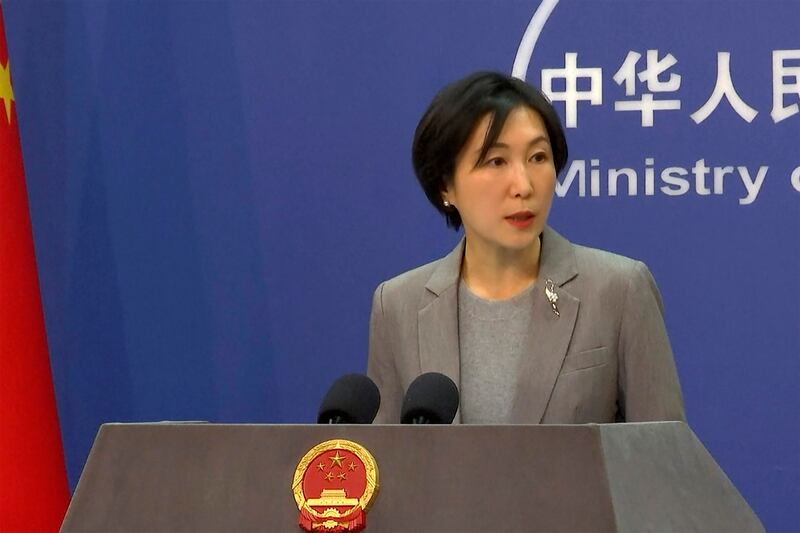The U.S. Department of Commerce on Thursday added to its export blacklist 28 Chinese and three Burmese entities, accusing them of supplying security equipment to the militaries of Iran and Myanmar and helping to promote Beijing’s “military modernization.”
The new additions to the Entity List means U.S. firms need licenses to export goods to the companies, which are rarely if ever granted. The entities are accused of taking part in activities "contrary to the national security or foreign policy interests of the United States."
A Commerce Department press release says 18 of the 28 Chinese firms were blacklisted "for acquiring and attempting to acquire U.S.-origin items in support of [China's] military modernization efforts, and for supplying or attempting to supply a sanctioned entity in Iran."
But the blacklisted firms also include cloud computing giant Inspur and BGI Research and BGI Tech Solutions (Hongkong) Co., Ltd., two subsidiaries of genetics company BGI, which has been accused of working with China's military to secure DNA data of American citizens.
The Burmese entities are the country’s Department of Transport and Communications, as well as the surveillance firms FISCA Security & Communication Co. and Naung Yoe Technologies Co., Ltd., both of which the listing accuses of aiding Myanmar’s military junta.
The 28 Chinese and three Burmese companies were among 37 new firms blacklisted, including others from Russia, Belarus and Pakistan.
Regular cadence
Blacklisting of foreign firms came under the spotlight in Congress this week with House Foreign Affairs Committee chairman Michael McCaul, a Republican from Texas, on Tuesday grilling Commerce undersecretary of state Alan Estevez about $23 billion in exports to blacklisted firms he said had wrongly been allowed to go ahead.
Estevez replied it was a matter of policing, and that companies found to have exported goods to Entity Listed firms would be prosecuted.
But the practice has also come under fire from Beijing, with new additions to the Entity List being made on an increasingly regular cadence in the years since the Trump administration's high-profile blacklisting of Chinese telecoms giant Huawei in May 2019.

Speaking at the Chinese Foreign Ministry’s press briefing on Friday, spokesperson Mao Ning slammed the blacklisting of BGI and Inspur, in particular, saying they were “legitimate and lawful” companies.
“The U.S. is once again cracking down on Chinese companies under false pretexts through unfair means. China strongly deplores and firmly rejects this,” the spokesperson said, calling on the U.S. government to “respect basic facts, abandon ideological bias [and] stop suppressing Chinese companies under false pretexts.”
Edited by Malcolm Foster.

